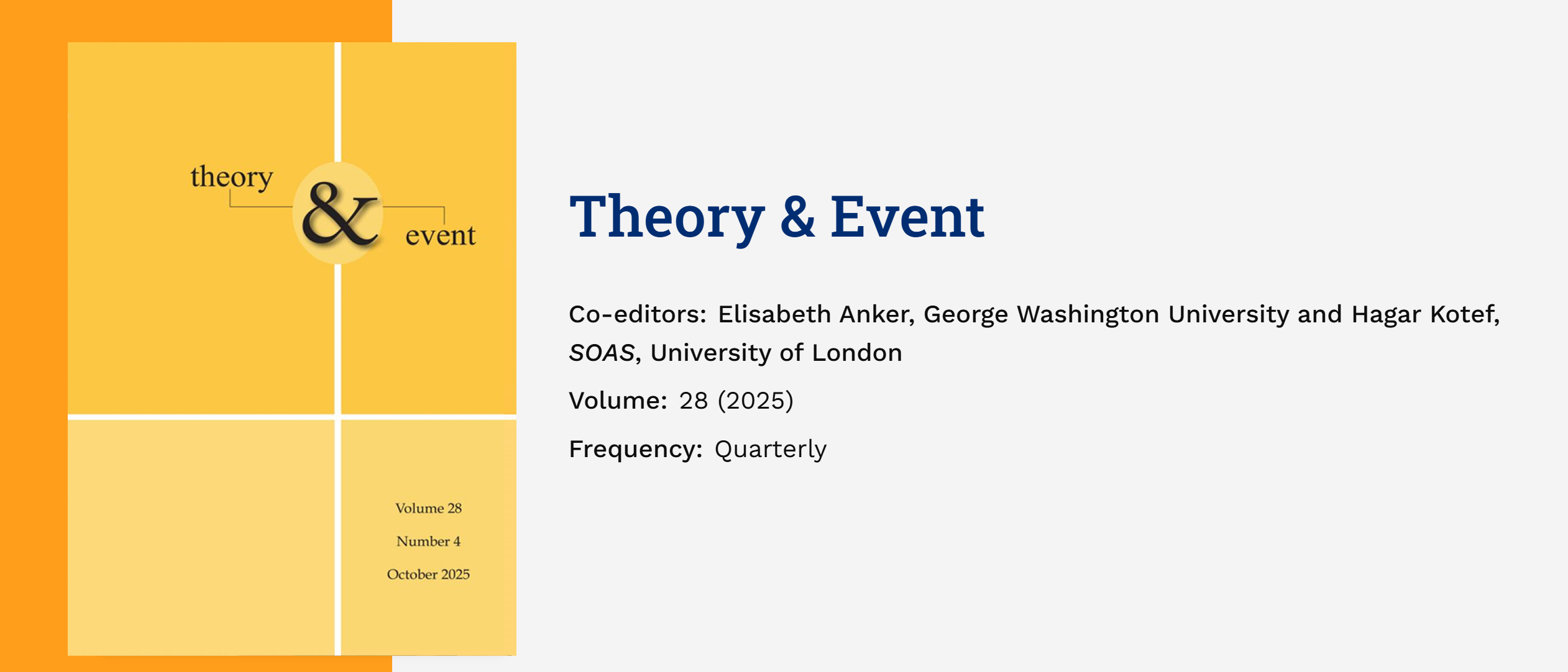
Theory and Event began in 1997 as an exclusive, online, peer-reviewed journal, the first of its kind at a time when digital intellectual life was in its infancy. Since its first issue, it has established a reputation for cutting-edge theoretical and political inquiry. It is a journal of political theory with an international editorial board, authors, and readership. We welcome original theoretical interventions, interpretations, and engagements with ideas, cultures, institutions, issues, and unfolding events that have a particular relevance to questions of politics.
Theory and Event features innovative political theorizing in the humanities and social sciences. We publish academic essays as well as other forms of writing and representation, including polemics, photography, and moving images and sounds that engage diverse political ideas, phenomena, and events throughout the world. Related topics may include climate, sovereignty, territory, government, nation, race, family, gender, individual, capital, and the state old, new, and emerging forms of subjectivity as they may be expressed in elections, popular uprisings, and affective networks, flows, and assemblages; old, new, and combined media formations and, investigations into the objects and conditions of politics, ethics, and critique. The journal encourages contributions that are rigorous and lively, and that are attentive to scholarship without sacrificing creativity or timeliness.
The Review Section of Theory and Event seeks to foster international and cross-disciplinary dialogue about issues in contemporary politics and political theory. Reviews may involve extended reflections on several books grouped thematically, extended reflection on a single book that promises to alter the terms of discourse in important ways, or a shorter examination of a recently published book. While reviews are published in English, the books under review need not be.


